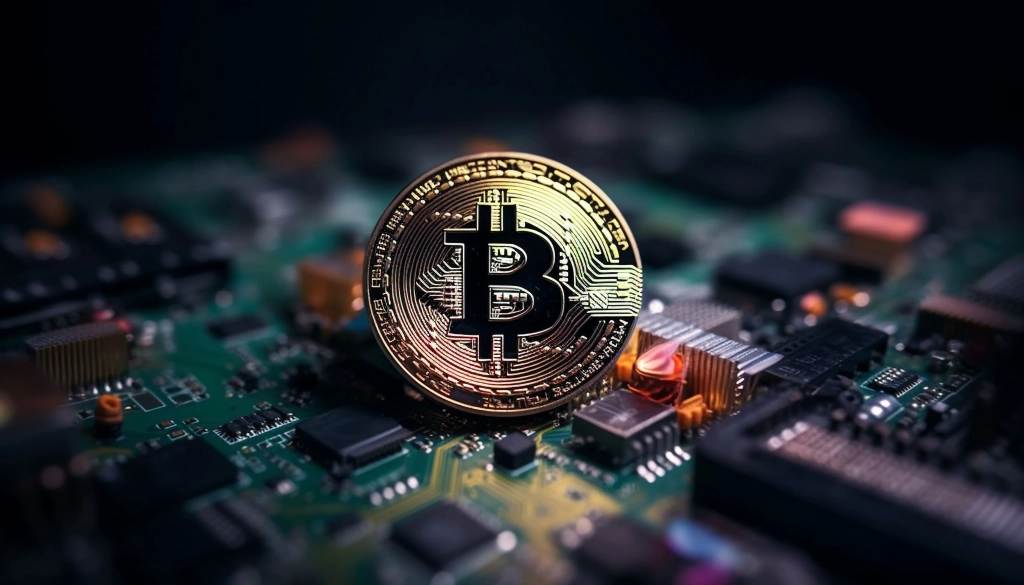The Investment Duo: Real Estate and Cryptocurrency in the Philippines

Investment opportunities abound in the Philippines, a nation experiencing robust economic growth. But what’s caught the eye of both local and foreign investors are two distinct yet equally thrilling domains: Real Estate and Cryptocurrency. These realms present a diverse spectrum of opportunities and challenges. This comprehensive guide will explore Real Estate and Cryptocurrency in the Philippines, shedding light on various aspects that can help make or break an investment in these fields.
Understanding the Landscape
The Philippine Economy: An Overview
A robust economy driven by various sectors like services, industry, and agriculture, the Philippines has shown steady growth. Exploring the macroeconomic factors affecting Real Estate and Cryptocurrency in the Philippines is a fundamental step for potential investors.

Real Estate in the Philippines: A Growing Market
The Philippine real estate market has seen remarkable growth, thanks to urbanization and increasing demand for housing and commercial spaces. Here, we’ll delve into the details of the real estate market, touching on areas like commercial, residential, and agricultural real estate.
RELATED: Alternative Housing Options in the Philippines: Tiny Homes, Container Houses, and Prefab Houses
Real Estate Investment: Finding Your Niche
Real estate investment in the Philippines offers a variety of opportunities across diverse niches. Finding the right niche can be the key to a successful investment.
Residential Properties
From condominiums to single-family homes, the residential real estate market offers lucrative opportunities, especially in urban centers like Metro Manila, Cebu, and Davao.
Commercial Properties
Investing in commercial properties like offices, malls, or warehouses can yield significant returns. Understanding the local demand and zoning regulations is crucial.
Agricultural Land
Agricultural land investment has its unique appeal and considerations, from farmland to agri-business developments. Analyzing soil quality, location, and potential use is vital.
Vacation Properties
The Philippines, with its beautiful beaches and tourist attractions, provides opportunities for investing in vacation properties. Areas like Boracay, Palawan, and Baguio are hotspots for such investments.
Real Estate Laws and Regulations in the Philippines
Understanding the legal framework governing real estate investment in the Philippines is essential.
Ownership Laws
Foreign ownership of land is restricted in the Philippines. Knowing the ways around this, such as condominium ownership or leasing land, is crucial.
Zoning Regulations
Different areas have specific zoning regulations that determine the allowable uses of a property. Understanding these can save legal hassles later.
Permits and Licenses
Various permits and licenses are required for buying, developing, or selling real estate. From building permits to environmental clearances, compliance is key.
Taxes and Duties
Taxes like the capital gains tax, documentary stamp tax, and property tax are part of real estate transactions. Awareness of these can prevent unpleasant surprises.

Cryptocurrency in the Philippines: A New Frontier
The world of cryptocurrency has made significant inroads into the Philippines, emerging as a new frontier for investment and technological innovation. It’s not just about Bitcoin anymore; the market is buzzing with various cryptocurrencies, each offering unique potentials and challenges.
Understanding Cryptocurrencies
Cryptocurrencies are decentralized digital assets, with Bitcoin being the most recognized among them. In the Philippines, other popular cryptocurrencies include Ethereum, Ripple, and Litecoin. Understanding these digital currencies, how they work, and their unique attributes are essential for investors.
Regulatory Environment
Though initially met with skepticism, cryptocurrencies are now recognized by the Philippine government, with the Bangko Sentral ng Pilipinas (BSP) issuing guidelines for virtual currency exchanges. Knowing the regulatory landscape is crucial to avoid legal pitfalls.
Market Trends
The Filipino cryptocurrency market is marked by dynamic shifts and robust growth. This includes an increase in cryptocurrency trading platforms and growing acceptance among retailers. Understanding these trends can guide investment decisions.
Cryptocurrency Investment: Diversifying Your Portfolio
Diversification in the cryptocurrency market is vital to mitigate risks and maximize returns.
Understanding Various Cryptocurrencies
From Bitcoin to Altcoins, each cryptocurrency offers unique attributes. Understanding these can help in creating a diversified portfolio.
Trading Strategies
Active trading vs. long-term holding, leverage trading, and using trading bots are some strategies that investors can explore.
Utilizing Exchanges
Choosing the right cryptocurrency exchanges that offer various cryptocurrencies for trading, security features, and compliance with local regulations is essential.
Risks and Rewards
Balancing the risks and rewards by spreading investments across different cryptocurrencies, considering the risk tolerance and market trends, is the key to a successful diversified portfolio.
Cryptocurrency Regulations in the Philippines
Regulation of cryptocurrency in the Philippines is evolving, and understanding this landscape is essential.
BSP Regulations
The Bangko Sentral ng Pilipinas (BSP) regulates virtual currency exchanges, ensuring consumer protection and legal compliance.
Anti-Money Laundering Laws
Cryptocurrency transactions are subject to anti-money laundering laws in the Philippines. Proper reporting and adherence are crucial.
Tax Considerations
Cryptocurrency gains are subject to taxation. Understanding how these taxes apply and the required reporting can save legal troubles.
Future Regulatory Considerations
The Philippine government is actively monitoring the cryptocurrency landscape, and new regulations may emerge. Staying informed about these changes is vital for compliance.
Risks in Cryptocurrency Investment
Cryptocurrency investments are marked by specific risks.
Volatility
Cryptocurrencies are known for their price volatility. Understanding this and having a risk management strategy can help.
Regulatory Risks
Changes in regulations can significantly impact cryptocurrency investments. Staying informed about legal changes is necessary.
Security Concerns
Security breaches and hacks are common in the cryptocurrency space. Utilizing secure wallets and exchanges can mitigate this risk.
Technology Risks
Cryptocurrencies depend on complex technologies. Any technological failure or vulnerability can lead to a loss.
Understanding these risks, diversifying the portfolio, and seeking professional guidance can lead to a successful investment journey in both real estate and cryptocurrency in the Philippines.
Technological Advancements and Future Trends
As we venture into a future shaped by rapid technological growth and innovation, both the real estate and cryptocurrency sectors in the Philippines are riding this wave of change. Understanding these technological advancements and future trends is vital for investors and stakeholders to stay ahead of the curve.
Real Estate Technology
- Virtual Reality (VR) and Augmented Reality (AR): These technologies are revolutionizing property viewings and marketing. Virtual tours enable potential buyers to experience properties from the comfort of their homes.
- Big Data and Analytics: Insights drawn from data analytics enable real estate professionals to make informed decisions regarding market trends, consumer behavior, and investment opportunities.
- Blockchain in Real Estate: Blockchain technology brings transparency, security, and efficiency to property transactions, reducing fraud and streamlining processes.
- Smart Homes and Buildings: The integration of IoT devices in homes and commercial buildings is shaping the future of real estate, providing automation, energy efficiency, and enhanced living experiences.
Cryptocurrency Technology
- Blockchain Evolution: The technology behind cryptocurrencies, blockchain, is evolving with new consensus algorithms, scalability solutions, and interoperability between different blockchain networks.
- Decentralized Finance (DeFi): DeFi is transforming the financial landscape by creating decentralized alternatives to traditional banking services, allowing users to borrow, lend, or trade assets directly.
- NFTs (Non-Fungible Tokens): NFTs have emerged as a new asset class, representing ownership of unique digital items like art, music, or collectibles, adding diversity to cryptocurrency investment options.
- Quantum Computing and Cryptography: The potential impact of quantum computing on cryptographic security is a growing concern and focus area in the cryptocurrency space.
Future Trends to Watch
- Sustainable Development in Real Estate: The trend towards green buildings and sustainable practices is growing in the real estate sector, driven by both regulatory incentives and consumer demand.
- Cryptocurrency Regulations and Adoption: Future regulations and government policies may significantly shape the cryptocurrency landscape in the Philippines, influencing investment strategies.
- Integration of AI in Both Sectors: Artificial Intelligence (AI) is expected to play an increasing role in both real estate and cryptocurrency, automating processes, enhancing predictions, and personalizing experiences.
- Emerging Technologies and Innovations: Constant innovation and the emergence of new technologies like 5G, edge computing, and neural networks may unlock new potentials and challenges in both sectors.
Real Estate and Cryptocurrency offer a world of opportunities for those willing to navigate the complex landscape. Understanding the market, the legal environment, and the risks involved, and leveraging technology can open doors to profitable investments. Both sectors have their unique attributes, and striking the right balance can lead to success.
FAQs
What is The Investment Duo: Real Estate and Cryptocurrency in the Philippines?
The Investment Duo refers to the combined investment opportunities in the real estate and cryptocurrency sectors in the Philippines. These sectors offer diverse opportunities, each with its unique risks and rewards.
How Can I Invest in Real Estate in the Philippines?
Investing in real estate in the Philippines requires understanding the property market, legal framework, and financial considerations. Collaboration with local experts, lawyers, and real estate agents can aid the process.
Is Cryptocurrency Legal in the Philippines?
Yes, cryptocurrency is legal in the Philippines. However, it’s regulated by various laws and guidelines, so understanding these is crucial for legal compliance.
What Are the Risks Involved in Investing in Real Estate and Cryptocurrency?
Both real estate and cryptocurrency investments carry risks such as market volatility, legal complexities, and technological changes. Proper research, diversification, and professional guidance can help mitigate these risks.
How Does Technology Impact Real Estate and Cryptocurrency in the Philippines?
Technology impacts both real estate and cryptocurrency. In real estate, technology leads to advancements like PropTech, enhancing efficiency and transparency. In cryptocurrency, blockchain technology plays a vital role in securing and verifying transactions.
How Can I Start Investing in Cryptocurrency in the Philippines?
Investing in cryptocurrency requires understanding the market, regulations, and potential risks. Starting with reputable exchanges, diversifying the portfolio, and staying updated with market trends are key steps.
Read more here: AllProperties Latest Blogs




